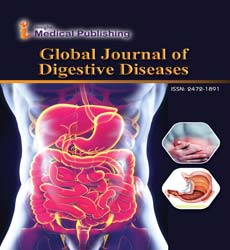Abstract
Clinical Impact of Probiotics among Patients Receiving Antibiotics with a High Risk of Acquiring Clostridium difficile Infection
Importance: Despite recommendations not to routinely use probiotics for primary prevention of Clostridium difficile infection (CDI) from Updated Practice Guidelines for CDI in 2010 by the Society for Healthcare Epidemiology of America and the Infectious Diseases Society of America, the use of probiotics remains common among prescribers and patients. To our knowledge, there has been no analysis conducted to evaluate the impact of probiotics on the primary prevention of CDI among patients receiving antibiotics known to be associated with an increased risk of CDI.
Objective: To determine whether patients who receive “high-risk” antibiotics along with probiotics are at a decreased risk of developing CDI.
Design, setting, and participants: This was a retrospective cohort study including adult patients admitted to Yale New Haven Hospital, Saint Raphael Campus, between July 1, 2010 and December 31, 2010. Patients were excluded if they did not receive high-risk antibiotic(s) for more than 5 days nor had a history of CDI.
Interventions: Eligible patients were then analyzed based on whether they had received concomitant use of probiotics or antibiotics alone.
Main outcome(s) and measure(s): The primary outcome of the study was the development of CDI within 90 days of high-risk antibiotic use.
Results: A total of 389 patients were included in the study. CDI occurred in 8.4% (12/143) of patients who received concomitant probiotics as opposed to 3.3% (8/246) that had CDI and received antibiotics alone with relative risk (RR) of 2.58 (95% CI: 1.08, 6.16; p=0.033). A chi-square analysis identified statistically significant differences in age (p<0.0001) and proton-pump inhibitor (PPI) utilization (p=0.0088), but the imbalance between patients with and without probiotics was removed after adjusting for the propensity score (p=0.1141).
Conclusion and relevance: We found that use of antibiotics along with probiotics had a significantly higher incidence of CDI than those who did not receive probiotics. Our findings based on adjusted odds ratio do not support the recommendation of the routine use of probiotics for the prevention of CDI. Other strategies such as eliminating the unnecessary use of PPI should be applied to prevent CDI.
Author(s):
Justine E Dickson, Whitney Y Hung and Tai-Tsang Chen
Abstract | Full-Text | PDF
Share this

Google scholar citation report
Citations : 112
Global Journal of Digestive Diseases received 112 citations as per google scholar report
Abstracted/Indexed in
- Google Scholar
- Sherpa Romeo
- WorldCat
- Publons
- Secret Search Engine Labs
Open Access Journals
- Aquaculture & Veterinary Science
- Chemistry & Chemical Sciences
- Clinical Sciences
- Engineering
- General Science
- Genetics & Molecular Biology
- Health Care & Nursing
- Immunology & Microbiology
- Materials Science
- Mathematics & Physics
- Medical Sciences
- Neurology & Psychiatry
- Oncology & Cancer Science
- Pharmaceutical Sciences
